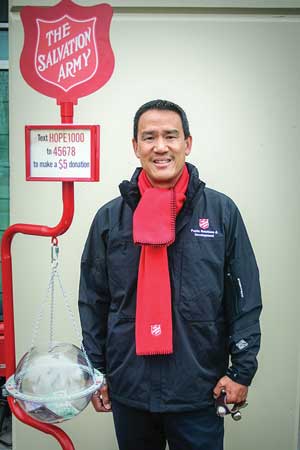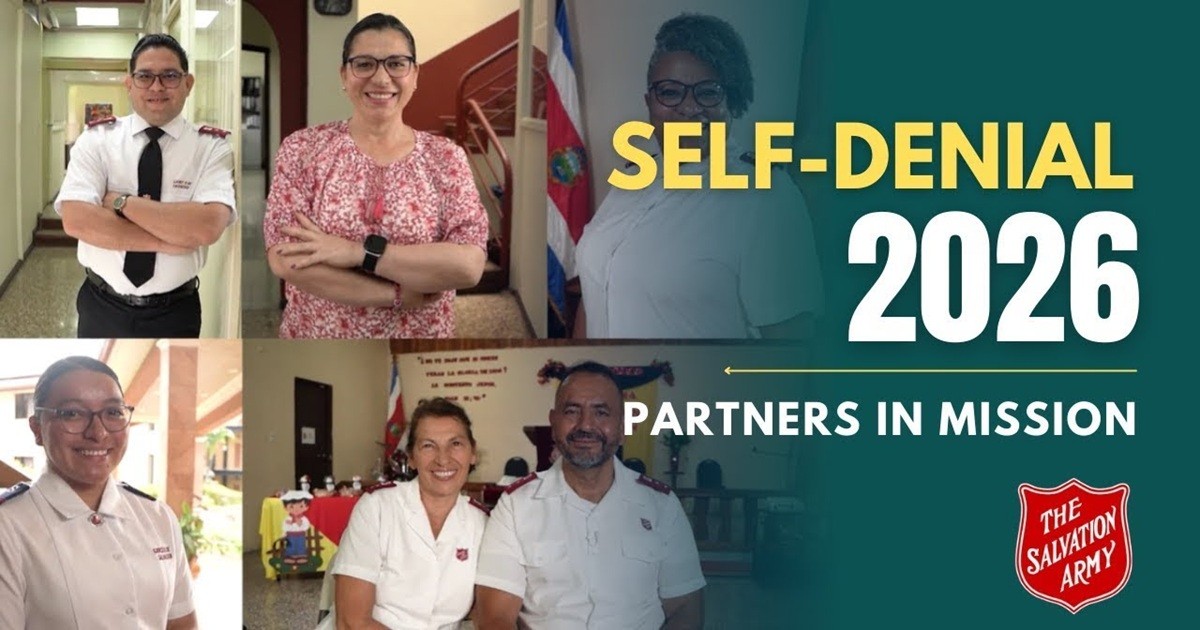1. Melissa Fulton
2. Dr. Rod Overton
3. Larry and Doreen Slashinksy
4. Lucy Martin
5. Ron Goyer
 "Volunteers are our greatest asset," says Brian Lee, regional kettle campaign co-ordinator, Burnaby, B.C.
"Volunteers are our greatest asset," says Brian Lee, regional kettle campaign co-ordinator, Burnaby, B.C.
Valuing Volunteers
An interview with Brian Lee, regional kettle campaign co-ordinator, Burnaby, B.C.
Why do people choose to volunteer with The Salvation Army?
They believe in what we do and value the need to provide dignity and give hope to others. We offer diverse opportunities in our ministries, social services, emergency disaster services and thrift stores—and the community recognizes this.
Who typically volunteers in your division?
We have a lot of volunteers from corporate partners, but we're also seeing more retirees. On the other end, we have a lot of high school and post-secondary students. As part of their curriculum, they learn about social responsibility and are taught that they, too, can make a difference in their community.
How many volunteer hours do they provide each year?
We've had in excess of 400,000 hours. Translated into dollar figures at a $10 minimum wage, that would be $4 million.
Have you noticed any trends in volunteering over the years?
People really embrace the notion of “give where you live.” We have a lot of long-serving volunteers and there are waiting lists for some of our ministries—especially for the annual Christmas meal. They really enjoy that experience.
I've also noticed that the younger generation is technologically driven and wants to know about opportunities through social media in real time. Many prefer a spontaneous approach. They may not be able to commit to something long-term, but they may be able to spare a few hours if requested that day. We try our best to customize the volunteer experience so the groups or individuals have a good sense of what the Army is about.
What do volunteers mean to your division?
Volunteers are our greatest asset and truly are “the army behind the Army.” Given the nature and complexity of the operations, the volunteers fulfil roles alongside the officers and staff. The volunteers really get a sense of appreciation and value for what we do and the diverse programs and services we provide. They're really amazed by what they've accomplished. When there's a need identified, we will lay it out and there's not a lot of down time. They hit the ground running. At the end of it, there's this huge sense of accomplishment and pride that they've contributed.
Fast Facts
• 47 percent of Canadians aged 15 and over volunteered their time in 2010.
• Fundraising and organizing events are the most common volunteer activities.
• Saskatchewan has the highest volunteer rate at 58 percent, followed by Prince Edward Island (56 percent), Alberta (55 percent) and Nova Scotia (54 percent).
• 93 percent of people say they volunteer “to make a contribution to the community.”
• Lack of time was listed as the biggest barrier to volunteering.
• 45 percent of non-volunteers had not become involved because no one had asked them to.
Source: “Volunteering in Canada,” Mireille Vézina and Susan Crompton, Statistics Canada










Leave a Comment